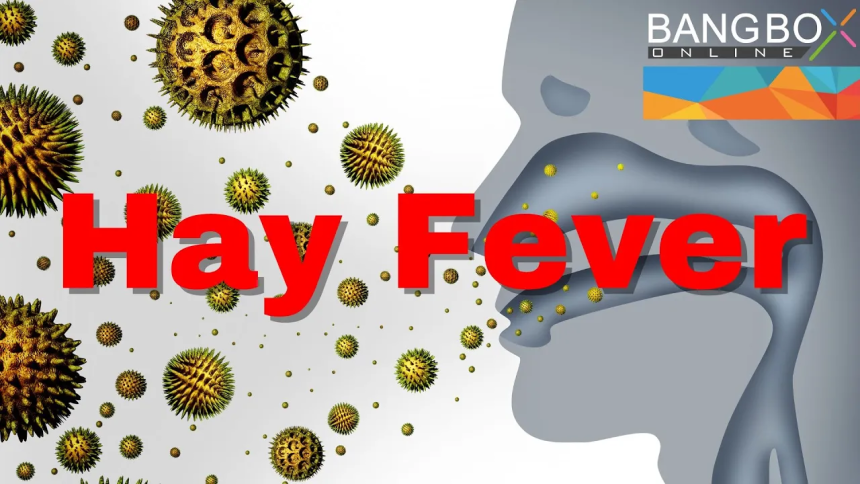
Hay Fever -- BangBox Online Official #hayfever
2023-07-19 19:03:14 - Bang Box Online
Hay fever, also known as allergic rhinitis, is a common allergic condition characterized by inflammation of the nasal passages and mucous membranes in response to certain allergens. Despite its name, hay fever is not caused by hay, and it does not result from a fever. Instead, it is triggered by allergens such as pollen, mold spores, pet dander, or dust mites.
Key points about hay fever:
- Seasonal and Perennial: Hay fever can be classified into two types - seasonal and perennial. Seasonal hay fever is triggered by airborne pollen from trees, grasses, and weeds, and it typically occurs during specific times of the year when these plants release their pollen. Perennial hay fever, on the other hand, is triggered by allergens that are present year-round, such as pet dander, dust mites, and mold.
- Symptoms: The symptoms of hay fever can vary in severity but typically include sneezing, a runny or stuffy nose, itchy and watery eyes, itching in the nose and throat, and general fatigue. The nasal symptoms may be accompanied by sinus pressure or headaches.
- Allergic Response: When a person with hay fever comes into contact with an allergen, their immune system reacts by releasing histamines and other chemicals, leading to the inflammation of the nasal passages and the subsequent symptoms.
- Diagnosis: Hay fever is usually diagnosed based on the patient's symptoms and medical history. Allergy testing, such as skin prick tests or blood tests, can also help identify specific allergens responsible for the condition.
- Treatment: The primary goal of treating hay fever is to alleviate symptoms and improve the individual's quality of life. This can be achieved through various approaches, including:
- Antihistamines: These medications block the action of histamines, reducing allergy symptoms.
- Nasal corticosteroids: These sprays help reduce inflammation in the nasal passages and relieve congestion.
- Decongestants: These can provide temporary relief from nasal congestion but should be used with caution, as overuse can lead to "rebound congestion."
- Allergen immunotherapy: For severe cases or when symptoms persist despite other treatments, allergen immunotherapy (allergy shots) may be recommended to desensitize the immune system to specific allergens.
- Prevention: While it may not be possible to completely avoid all allergens, certain measures can help reduce exposure to triggers. For seasonal hay fever, staying indoors during high pollen counts and keeping windows closed can be beneficial. Regularly cleaning and vacuuming the home can also help control dust mites and pet dander.
Hay fever is a prevalent allergic condition that can significantly impact a person's daily life during allergy seasons. With proper management, including medication, avoidance of triggers, and lifestyle adjustments, individuals with hay fever can find relief and minimize the impact of the condition on their well-being.
Follow us on:
Platform: https://www.bangboxonline.com/
Facebook: https://www.facebook.com/bangboxonline/

